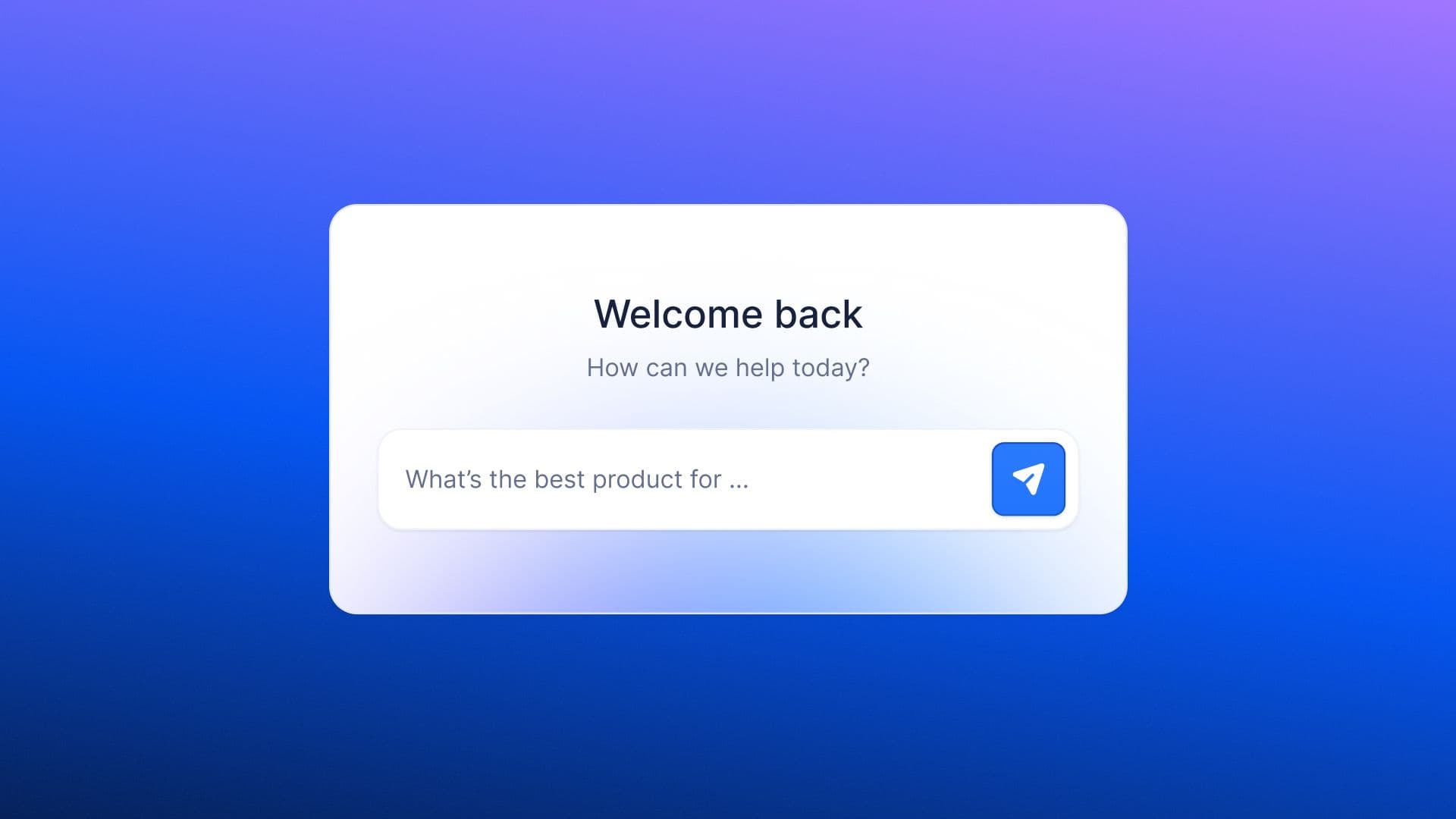How to Optimize Your Startup for AI Search
Why some brands get surfaced in AI answers—and how to make sure yours does too.
Search is changing fast. Customers no longer start with Google—instead, they ask AI assistants such as ChatGPT, Claude, and Perplexity for recommendations. These large language models (LLMs) do not rank links. They summarize what they understand about a topic and recommend brands that are discoverable, credible, and easy to interpret.
When startups adopt AI visibility tools, many realize that LLMs often struggle to find or describe them. Not because their product is weak or because the LLMs can’t be an effective tool for them, but because the company’s online presence is not discoverable enough for AI to understand.
Early analysis of LLM results shows a clear takeaway: If AI cannot discover your story, it cannot share it.
Why startups are missing from AI search
Most early-stage companies are invisible by design. While stealth mode is great for protecting against competitor interference, it’s not great for LLM discoverability once you launch. LLMs need structured, factual, and verifiable information. Unfortunately, startups have too little of it in the beginning.
Startup content often focuses on vision over clarity and product building over communication. This type of content makes early sites inspiring but challenging for AI to interpret, leaving gaps in structure and signals that models rely on to share your brand.
Common pitfalls
- Too little owned content that explains what the company does
- Overly technical language that confuses people and models
- Limited mentions or backlinks from credible sources
- Inconsistent content that AI cannot identify the expertise of
“The playing field is reset. It's no longer about who ranks highest, but whose answer is best.”
Chris Tam, Senior Growth Marketing Manager, Amplitude
How to optimize your startup for LLM search
You do not need a big budget to boost your startup’s Answer Engine Optimization (AEO). Even minor, intentional updates—such as clearer messaging and structured pages—can make a significant difference. You need to help AI understand your story better, not outspend competitors. Think of it as teaching AI to describe your brand exactly the way you would if you were in the room. Here are some easy ways to get started:
Create discoverable content
Treat your website as your training data for AI. Each page should help models describe you accurately.
- Home page: Explain what your company does, who it serves, and what problem it solves.
- Product pages: Focus on outcomes, not just features. Use verbs such as measure, test, or improve.
- About page: Share your mission and audience to strengthen association with your category.
- Pricing page: Keep pricing transparent and easy to read. Avoid hiding details behind tooltips or forms.
- Competitor comparisons: Write factual, structured comparisons that clearly differentiate your offering.
It helps you to put yourself in the shoes of someone using AI to research your company, product, or industry. Each key page should answer a question an LLM might receive, such as “What does [Company] cost?” or “Who is [Company] for?”
Publish credible, structured content
Just like traditional search algorithms, AI systems prioritize trustworthy information. You can build credibility by publishing structured data or first-party insights.
- Share small, original findings from your product, users, or category.
- Publish a “State of [Your Industry]” post or simple benchmark report.
- Organize your data clearly, using sections such as methodology, key insights, and implications.
- Repurpose findings on LinkedIn or Substack to build momentum.
When you publish factual and well-organized data, AI does not just recognize your brand; it learns from you.
Focus on one or two discovery channels
It is better to be consistent on specific channels than to be everywhere.
- LinkedIn: reach and credibility.
- YouTube or TikTok: visual storytelling and education.
- Substack or Medium: thought leadership indexed by AI systems.
- Reddit: authentic conversations and communities where people recommend and discuss tools.
Note: One reliable, robust, company-owned channel is better than five inactive ones.
What great AEO looks like
Some smaller companies are already standing out in AI search by getting the basics right. They clearly communicate what they do, maintain transparent pricing, and share valuable data that fosters trust.
When a brand’s online presence is consistent and discoverable, AI systems naturally cite them more often—even over larger competitors.
Your next step: Analyze how AI describes you
AI is already shaping how people discover and purchase products. If your startup is not showing up, you are likely losing visibility, leads, credibility, and revenue.
Amplitude’s AI Visibility tool is built to help startups understand the AI conversation about their products and take action to control their narrative. Customize your geography, topics, and competitors, and see how your company appears across leading AI systems. Then take action to make your story more discoverable and accurate.
Try Amplitude AI Visibility for free with a no-signup-required report or by creating a free Amplitude account to dig in for yourself.
If you're a startup looking to supercharge your 0 to 1 journey, also check out our Startup Scholarship for free access to the Amplitude Growth plan for a whole year.

Ferruccio Balestreri
Head of Engineering, Usability, Amplitude
Ferruccio is an AI-focused engineer who's passionate about helping companies understand how their products are being used. Previously, he was the cofounder and CTO of June, which was acquired by Amplitude in 2025.
More from FerruccioRecommended Reading

How The Economist Gets Insights in Seconds, Saving Analysts Hours
Feb 13, 2026
7 min read

Amplitude Expands AI Visibility Tool
Feb 5, 2026
7 min read

How Ramp Network Turned Data Into 30% Higher Conversions
Feb 5, 2026
5 min read

Why Hackathons Are the Best Kept Secret to Drive GTM Innovation
Feb 4, 2026
6 min read

